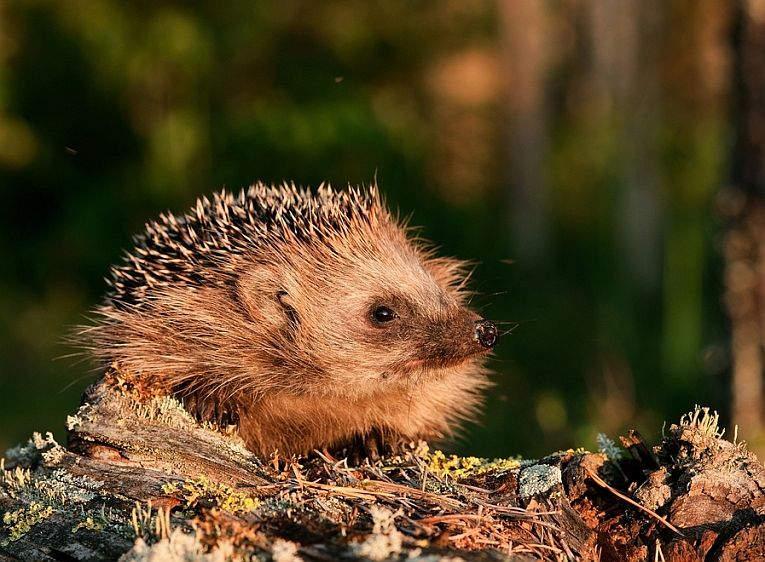When the wide open spaces available to animals such as the African pygmy hedgehog, Atelerix albiventris, become as restricted as the tiny areas available to the European hedgehog in the overcrowded UK, reductions in population can be expected. The same applies to foxes, owls, and even bees. The BBC Gardeners World Magazine has recorded losses of all these species throughout the islands of Britain. Erinaceus europaeus used to have a thriving population of 30 million, counted after WW2. Now the heavily urbanised nation certainly has barely a million hedgehogs(a reduction to less than 3%.)
This seems to be a lesson for any group of people as we lose contact with nature. The plants we live with are rarely native, while Americans find that African hedgehog is just the most delightful alien. No hedgehogs ever crawled as natives recently in the Americas or Australia!
The solution to such losses seems to have become obvious. Gardeners World give this house-building programme to help out the ‘hogs in UK gardens (although the instructions indicate consumption of vast amounts of port.) The attraction of birds by people to gardens is probably almost universal, but for bees, one of the critical losses in many countries, plants with suitable nectar-ridden flowers are often forgotten. Even foxes and badgers, some of the most maligned species by officialdom in the UK, are attracted by many people to give them a connection with local wildlife.
It is truly useful to watch TV programmes about saving rare snow leopards, but many want to save their local common species from persecution. It may be going a step too far to save worms, but just watch the response of children to an unfamiliar snail. Adults lag behind the young only in some ways. They can be just as enthusiastic about some species, especially if whole habitats can be saved around their precious local wood or lake.
The hedgehog certainly stands for true wildlife in Eurasia or Africa. People appreciate it is virtually defenceless. Empathy could be one answer if we need to persuade others to adopt conservation policies. We have little feeling for plants or animals that have been regarded as invading our territory or eating our farm products. The tables generally have turned, in that chemical and biological controls have decimated many species, friend or foe. With our prickly friend, he or she is a victim of walled gardens, heavy traffic, slug pellets and perhaps several other factors we have failed to recognise. Their nocturnal lives require many inputs for feeding, breeding or navigation that we have little appreciation of. It could just be that lighting, noise or other animals have larger effects than we can appreciate. They are noisy, quarrelsome, poor-sighted and really not like us at all --- or ---wait a minute! Maybe there is an obvious reason they are outmoded
for this urban existence.
More on the hedgehog and its problems here, from our story on Hedgehogs, gardens and conservation.










